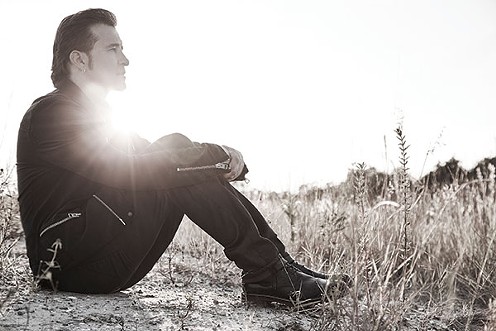A few years ago, it might have seemed inconceivable that one of the best-selling bands of the early aughts wouldn’t dominate the first page of a Google search for its name, but here we are. Equally mind-boggling: That we’d be considering a late-stage entry in the Rocky franchise (with the same name as said band) an Oscar snub in multiple categories.
2016 is weird.
Scott Stapp got in on the joke last November by reviewing Creed, the movie, with astonishment that it wasn’t true to the origin story of his multi-platinum band, Creed. The Funny or Die video went semi-viral and managed to score laughs beyond the face-value irony of “Creed, Creed — get it?” (sample line: “I’m not from Philadelphia; I’m from Creed”). But Stapp’s Creed review wasn’t just the average parody video — you could argue that it was his first buoyant public moment after a too-public breakdown.
In late 2014, Stapp drove across the country, posted alarming videos to Facebook in which he claimed to be penniless and homeless. He made some surreally contradictory phone calls to his son’s school and wife, claiming that “the core of ISIS is within my own family,” and insisting that he was an agent in the CIA tasked with assassinating Obama. Following that episode, Stapp attributed the disturbing behavior to alcohol and drug abuse, along with a recent diagnosis of bipolar disorder.
In the months since, Stapp and his wife, Jaclyn, made a transparent effort to mend their marriage on VH1’s Couples Therapy. After his current Proof of Life tour wraps, Stapp teases new solo music in the pipeline (which he can’t go into detail about), along with an open door for reuniting Creed. Through clear eyes and open arms, Stapp finally seems ready to reclaim his image.
How are you doing at this point in your recovery?
I’m doing great, man. I’ve made a pretty significant lifestyle change in terms of living a healthy lifestyle — how I live my life. I’m just taking it one day at a time.
Do you still have a strong recollection of what happened and where you were emotionally during that month-long period, or is it mostly hazy?
I think I’ll forever remember that period in my life, because it’s something that dramatically changed my life and gave me a lot of answers to why I was struggling so hard in my journey. It’s made an indelible imprint on my mind as to the seriousness of mental health and also addiction and alcohol.
Once you were officially diagnosed with bipolar disorder, is that when things really snapped back into place for you?
Yeah, most definitely. It’s never easy to get diagnosed with a life-long illness, but I got a lot of answers … once I learned more about the illness. I began to reflect on my life, my past. It made sense to me, so then it was just a matter of getting into acceptance and realizing, “Hey, OK, this is the cards I’ve been dealt.” And it’s something that’s very treatable, and if I do what I’m supposed to do and change my lifestyle — in terms of diet, exercise and medication — I can return to normal with a healthy, productive life.
This current tour is the first since that breakdown. I’m curious as to why you’re calling it the Proof of Life tour, since the episode occurred between that record’s release and right now?
Because it’s a continuation of that tour. You know, I took a little over a year off right after the Proof of Life album essentially came out, so I never completed that tour … We’re picking up where we left off prior to that health crisis and continuing on with the promotion of the record and promotion of the themes of that record, because those themes are so relevant to my life now.
How would you characterize the fans’ support at these shows and during your recovery?
It’s been overwhelming. There’s been a tremendous outpour of support. We’ve received hundreds of emails to our general mailbox, with people expressing how they’ve recently gone through a similar situation or they’re dealing with a situation with a loved one — a spouse or a family member. A lot of them were asking for guidance from us, you know, what did we do, where did we go, who did we talk to.
You’ve spoken before about how the public can consume and go crazy for certain acts and then spit them out years later. In one interview, you’ve talked about this as being an American thing. Do you notice when touring in other countries that this phenomenon isn’t as strong?
What I’ve learned in touring in other countries is that they [couldn’t] care less about your personal life or anything that you do publicly outside of music. They care about the music, they’re fans of the music, and they love the live show. And outside of that, they don’t even pay attention to anything. So there’s a much different phenomenon in America as it pertains to celebrities and people in the public eye.
Do you feel misunderstood by American audiences?
Not at all. For the first time in my career, I feel very much understood.













